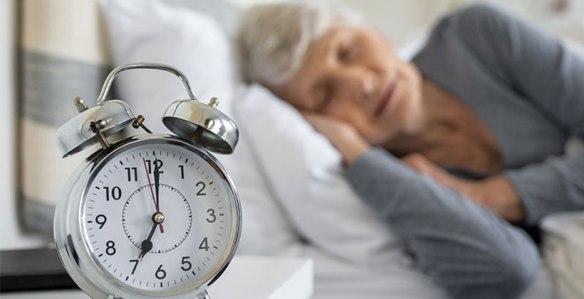The Importance of Sleep for Seniors
Why it matters and tips for getting your Zzzzz’s

You hear the message frequently: Sleep is important. But are you aware of the many ways that getting enough sleep can impact your health?
As we age, it’s normal for sleeping patterns to change. We may wake up earlier, get sleepy earlier in the evening, and get less deep sleep. But some sleep problems — including insomnia — are not simply a normal part of aging. For seniors, sleep is as vital as ever for general well-being.
March 15 marks World Sleep Day, which raises awareness about the importance of sleep for people of all ages. The day’s theme, “Healthy Sleep, Healthy Aging,” highlights the potential benefits sufficient sleep can bring to quality of life and the negative impact of poor sleep.
Why it matters
For seniors, getting a good night’s sleep is critical. Along with aiding memory formation and concentration, sleep gives the body a chance to repair cell damage that happens each day. It also helps keep the immune system working properly, which in turn helps ward off illnesses.
Seniors who sleep poorly have a higher risk of depression, along with memory and attention problems. In addition, excessive sleepiness during the day and falls at night are more likely to occur in the absence of sufficient, healthy sleep. Poor sleep also may contribute to some health problems, including weight gain, diabetes and heart disease.
Adults generally need about seven to nine hours of sleep each night, but the way you feel during the day should serve as your guide. If you wake up frequently during the night or you feel excessively tired during the day, you may need more sleep.
If you believe you are not getting enough sleep or that your sleep is disturbed, consider speaking to your doctor. Sleep disorders don’t necessarily correlate with age, although our sleep patterns do tend to change as we get older. For example, you may wake up earlier and want to turn in earlier than in the past.
Tips for getting your Zzz’s
Everyone has occasional trouble sleeping, but if you frequently fail to get enough sleep or quality sleep, it’s important to work with your doctor to treat any underlying medical causes. If your doctor gives the OK and you’re still having trouble sleeping, consider these tips from Mayo Clinic for getting the rest you need:
- Create an appropriate environment in your bedroom. Keep your room sufficiently dark, quiet and cool to allow you to get restful sleep.
- Get ready for bed with calming activities. Relaxation techniques or a warm bath can help. In addition, avoid heavy meals too close to bedtime, and limit alcohol and caffeine.
- Stick to a regular schedule for sleeping. Try to go to bed and wake up around the same time every day, including weekends.
- Try to get some exercise each day. Physical activity can help you sleep better, but avoid exercising close to bedtime.
- Take steps to manage stress. Meditation, relaxation techniques and journaling can help you cope with anxiety.
- Avoid long naps during the day. Sleeping for more than 30 minutes in the daytime may interfere with your nighttime rest.
How is your sleep — in both quality and quantity? For World Sleep Day, consider simple changes you can make to get plenty of healthy, renewing rest.